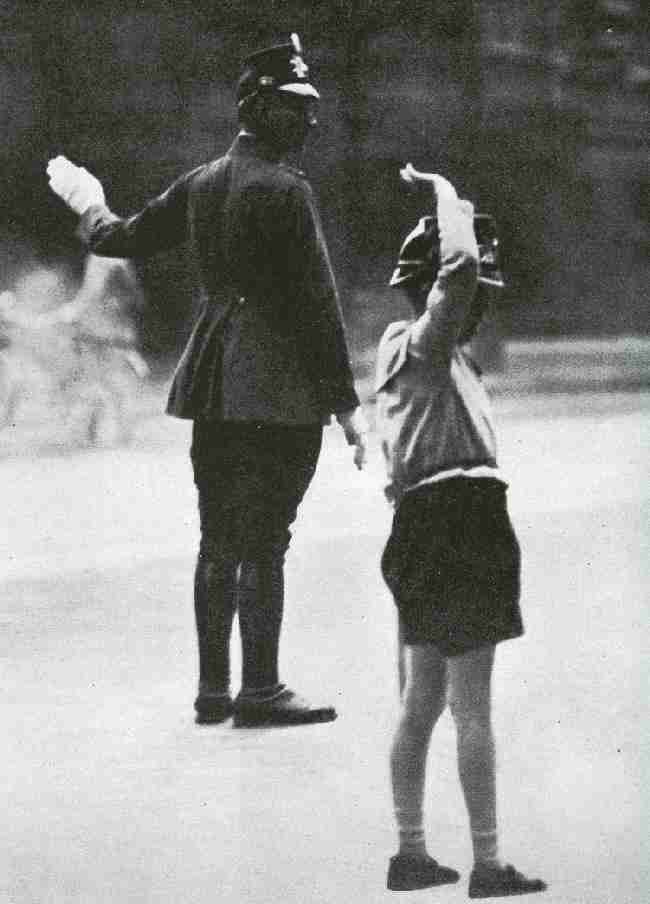
Weimar Republic: The Police

Figure 1.--This photograph from the Weimar Republic was taken in Berlin. It is undated, but we would guess was taken in the late 1920s. We wonder if the boy might have been the police offier's son. The different German states in the Weimar Republic still had considerable power. The states, for example, still had separate police forces.
|
|
The Weimar Republic shared the same police intitutions as imperial Germany. German had a federal system. The systtem was much like that of the Unitrd States. There wa no national police force. Each of the states (Landen) that comprised the Empire and now the Weimar Republic had police forces as did muncipalities. And each of these different police forces had their own poilicies. This hampered law enforcement and after the disolution of the Empire, Weimar politicans cut budgets. Atvthe same time economic problems and dislocations resulted in an increase in crime. Criminal gangs proliferated and became involved in prostitution, drugs, gambling, pornography, robbery, and other ilicit activities. The gangs were well organized and financed and commonly operated across state lines. This comjplicated police investigations. There was no national police force during the Weimar Republic. Most German policemen in the Weimar Republic were not NAZIS, even after the NAZI Party had grown in importance during the late-1920s and early-30s. They were, however, like the Army, overwealmingly conservative. Many had monarchist sympathis, but attempted to sty out of politics. Most pursued their duties in a porofessional manner and tended to see themselves impartial enforcers of the law. German policemen, however, like Reuchwehr officers were were suspicious of democratic parties, especually the Communits, but also moderate soiilists (the Social Democrats, Center, Liberals). They had been trained and served under the Imperial service to see these parites as not loyal to the state. And these were the very political paries that dominated the Weimar Republic. Right wing parties, even those engaging in violoence were seen by many poicemen as more loyal and patriotic. This in part explains Hitler's treatment after the abortive Beer Hall Putsch.
HBC

Navigate the Boys' Historical Clothing Web Site:
[Return to Main Weimar page]
[Return to Main German World War II page]
[Introduction]
[Activities]
[Biographies]
[Chronology]
[Clothing styles]
[Countries]
[Bibliographies]
[Contributions]
[FAQs]
[Glossaries]
[Images]
[Links]
[Registration]
[Tools]
[Boys' Clothing Home]
Created: 2:23 PM 7/14/20121
Last updated: 2:23 PM 7/14/2012



